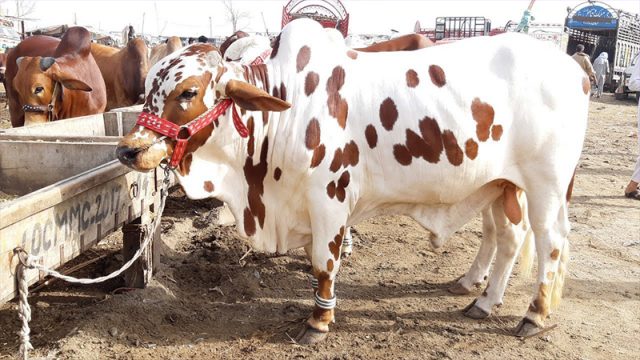News Highlight
FAHD Minister launches Animal Pandemic Preparedness Initiatives and World Bank-funded Animal Health System Support for One Health.
Key Takeaway
- The Animal Pandemic Preparedness Initiative and the World Bank-funded “Animal Health System Support for One Health”.
- They are multifaceted efforts to treat animal pandemics holistically.
- The One Health approach acknowledges the interdependence of human, animal, and environmental health.
- The Ministry has also established the World Bank-funded Animal Health System Support for One Health (AHSSOH) project.
Animal Pandemic Preparedness Initiative (APPI)
- About
- The programme is consistent with the WHO’s Global One Health policy.
- It emphasises the necessity of cross-sectoral collaboration in combating zoonotic disease threats.
- It will help to:
- Improve veterinary services and infrastructure
- Disease surveillance capabilities
- Early detection and response
- Build the capacity of animal health professionals
- Awareness among farmers through community outreach.
- Aim
- The effort aims to improve India’s preparedness and response capacities for zoonotic disease prevention and control.
- As a result, both animal and human health are protected.
Key Activities under Animal Pandemic Preparedness Initiative (APPI)
- Joint investigation and epidemic response teams have been established.
- Create a comprehensive, integrated disease surveillance system.
- Regulatory system strengthening (e.g., Nandi online portal and field trial guidelines).
- Developing disease prediction algorithms and early warning systems
- Disaster Mitigation Planning with the National Disaster Management Authority.
- Begin focused R&D to create vaccines, diagnostics, and treatments for priority diseases.
- Create genetic and environmental surveillance tools to increase disease detection’s timeliness and sensitivity.
Animal Health System Support for One Health (AHSSOH)
- About
- Using the One Health method, it tries to develop an ecosystem for a better animal health management system.
- The project will be a Central sector programme over five years.
- It has targeted 151 districts across five participating states, focusing on renovating 75 district/regional laboratories and fortifying 300 veterinary hospitals/dispensaries.
National One Health Mission (NOHM)
- About
- The NOHM is a cross-ministerial initiative accepted at its 21st meeting of the Prime Minister’s Science, Technology, and Innovation Advisory Council (PM-STIAC).
- The NOHM will be implemented in partnership with other ministries by the Ministry of Health and Family Welfare.
- Objectives
- The NOHM will concentrate on human, animal, and environmental health interrelationships.
- Its goal is to promote holistic and integrated disease prevention and control methods.
- Its goal is to promote a coordinated and integrated disease control and prevention strategy in India, considering the interconnectedness of human, animal, and environmental health.
- Components
- Improving zoonotic disease surveillance, early warning systems, and antimicrobial resistance.
- Promoting research and development in areas related to One Health.
- Increasing the capacity of health professionals, veterinarians, and researchers.
- Increasing public understanding and community participation in One Health problems.
- Creating policies and guidelines for One Health programmes and strategies.
- Creating a data repository and information system for One Health.
- Promoting national and international alliances and partnerships to address One Health issues.
Initiatives by the Government towards animal health
- Increased Investment
- The Government of India’s Department of Animal Husbandry and Dairying (DAHD) has been seeking to improve investment in preparedness.
- Its purpose is to preserve public health and strengthen economic resilience so India may become a world leader in animal pandemic preparedness.
- One Health Unit
- DAHD has established a specialised ‘One Health Unit’ with the Gates Foundation.
- Animal Pandemic Preparedness Model
- One of the unit’s key focus areas has been building a storage system for an “animal pandemic preparedness” concept.
- As well as the smooth exchange of data and information on cattle health.
- It will be deployed under the National Digital Livestock Mission (NDLM).
- Animal Health Regulatory Ecosystem
- The DAHD established an Empowered Committee for Animal Health to streamline the country’s regulatory framework.
- Linking of animal disease diagnostic labs
- Significant progress has been made within the scope of the NDLM by connecting all animal disease diagnostic labs.
- It entailed sero-surveillance through a single gateway and standardisation of lab SOPs.

Way Forward
- Using the One Health paradigm, the APPI project attempts to develop an ecosystem for a better animal health management system.
- It will give these states technical assistance, capacity building, infrastructure development, and innovation funding.
- It improves animal health services and outcomes.
- The APPI and the AHSSOH projects are projected to impact the animal health sector in India and abroad substantially.
- They will help to;
- Protect the health and well-being of animals and humans from zoonotic illnesses.
- Increase livestock farming productivity and profitability
- Reduce economic losses due to animal diseases
- Improve food safety and security
- Contribute to environmental sustainability.
- The APPI and the AHSSOH projects demonstrate India’s commitment to tackling animal pandemics holistically.
Pic Courtesy: Saama English
Content Source: PIB



